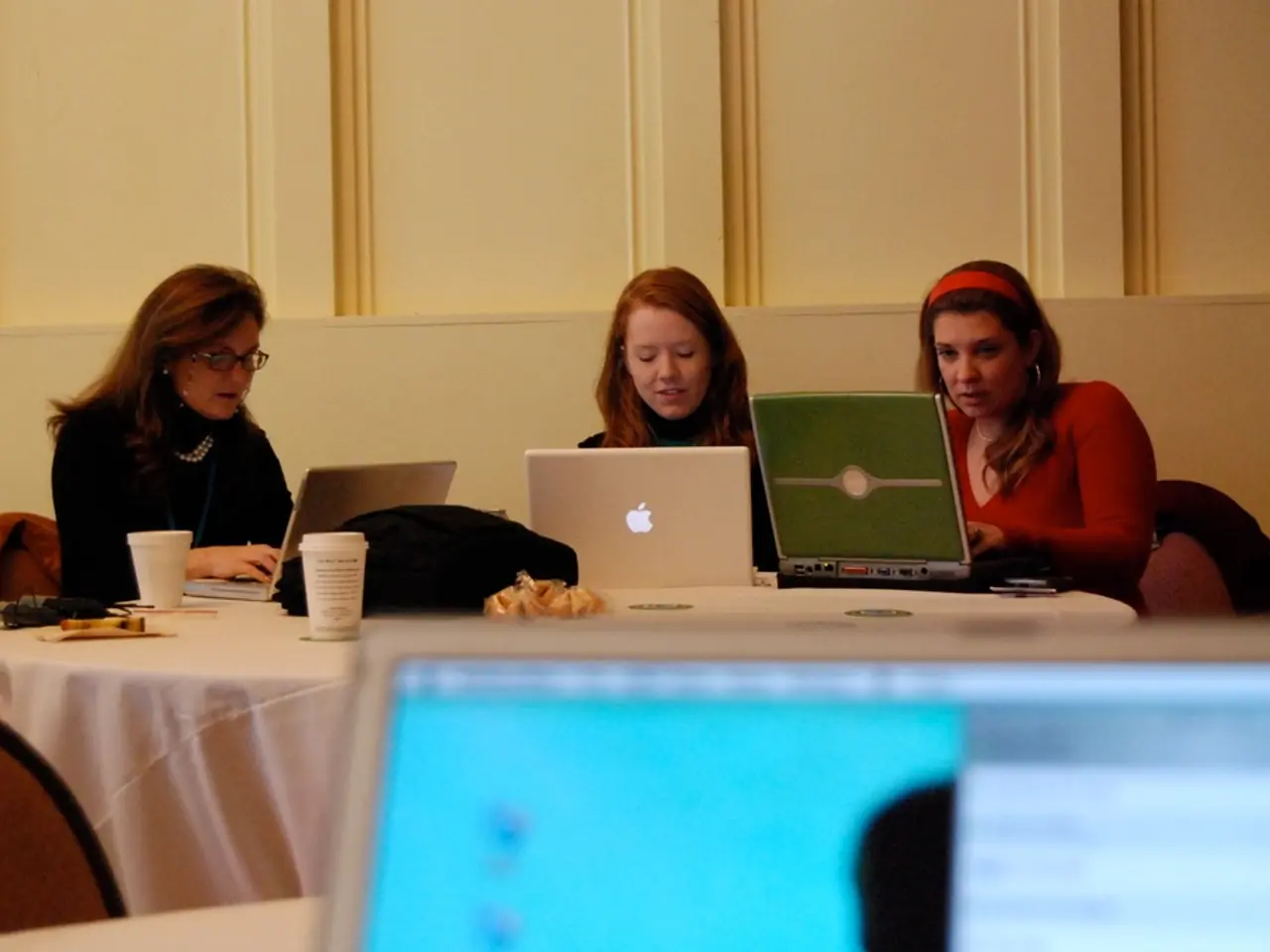Reconceptualizing Workplaces to Accommodate Individuals with Psychosocial Impairments
In India, the economic landscape has been marred by job insecurity, wage stagnation, and the erosion of collective bargaining. However, a significant shift is underway, as initiatives emerge to encourage employment for people with psychosocial disabilities.
One such initiative is challenging traditional employment models, asserting that economic spaces and workplaces need to bend to meet people's rhythms, not demand that they break against institutional rigidity. For instance, the employment initiative by The Banyan and Chennai Mission, led by people with disabilities, began two years ago.
People like Sundar, diagnosed with schizophrenia, have struggled to find employment in a labor market that demands unforgiving mechanical reliability and constant presence. However, this initiative prioritizes workplace support, including a person to coach the workplace to meet their daily needs and build confidence at their own pace.
Work interventions for people with mental health conditions often adopt a deficit-based approach, assigning them to sheltered workshops and vocational training, and subjecting them to assessments. This initiative, on the other hand, learns that when someone says they can't do a job, the system needs to interrogate why and how the workplace can be fixed to address these needs.
Customized Employment models tailor job roles to suit individuals' abilities and needs, involving negotiation among the employee, employer, and job coach to create meaningful work suited to people with intellectual and psychosocial disabilities. Transitional Employment and Internships provide exposure, experience, and skill development, essential pathways toward sustainable employment for persons with disabilities.
The Rights of Persons with Disabilities (RPwD) Act, 2016 mandates a 4% reservation in government jobs for persons with benchmark disabilities, including 1% for persons with intellectual and specific learning disabilities. However, the law’s implementation often faces challenges.
NGOs and social enterprises such as the Diya Foundation, AMBA, Spastics Society of Tamil Nadu, and ENABLE India pioneer supported employment by providing vocational training and collaborating with corporates to foster inclusive workplaces. Under the Companies Act, 2013, Corporate Social Responsibility (CSR) initiatives increasingly support inclusive hiring. However, sustained inclusion requires integrating disability support into core HR policies rather than limiting it to CSR gestures.
Government education and skill development programs such as Sarva Shiksha Abhiyan (SSA) and Samagra Shiksha promote inclusive education and training from early stages, providing the groundwork for employability for persons with disabilities, including psychosocial ones. Addressing stigma, misconceptions, and lack of accessibility in workplaces is critical. NGOs contribute by offering counseling, peer support, and social environments that reduce isolation and enhance psychological wellbeing, which underpin employability and productivity reimagined beyond conventional models.
There is growing recognition of underappreciated psychosocial disabilities like ADHD in policy, with calls for enhanced legal recognition under disability frameworks to improve access and reduce stigma, which impacts employment inclusion.
In terms of reimagining work beyond neoliberal productivity, India's approach incorporates emphasizing customized work roles that prioritize capabilities and dignity over rigid productivity metrics. Supported employment models and NGO interventions aim to build community, psychological support, and well-being, viewing work as holistic participation rather than only economic output. The Indian framework encourages a shift toward inclusive social and emotional support systems within work environments that go beyond the narrow focus on productivity to acknowledge full human potential and personal dignity.
To dream of employment justice for people with psychosocial disabilities is to recognize the need for systemic transformation, moving towards an economy that values care, creativity, and community-building regardless of their market utility. For instance, Selvi, after living in a psychiatric institution, became the house elder and neighborhood grandmother in a shared home, demonstrating the value of variegated roles.
Transport to work is identified as a significant barrier for people with psychosocial disabilities. The jasmine fields, once a traditional livelihood for some, are now long gone, but the knowledge of their cadence remains. Through this initiative, 50 people have participated in running canteens or cafes across four locations in Chennai.
Desappan, diagnosed with schizophrenia and catatonia, walked 250 km to return home from a dargah, defying stereotypes about people with serious mental health conditions. The initiative prioritizes workplace support, including a person to coach the workplace to meet their daily needs and build confidence at their own pace.
In conclusion, India is currently combining legal mandates, inclusive education, NGO-led supported employment, and CSR-driven corporate inclusion to promote meaningful, dignified employment for people with psychosocial disabilities, while also fostering broader values of work that transcend traditional productivity-centric neoliberal models.
- The employment initiative by The Banyan and Chennai Mission, which is led by people with disabilities, has prioritized workplace support, including a person to coach the workplace to meet the daily needs and build confidence of individuals with psychosocial disabilities, such as Sundar who was struggling to find employment due to the labor market's demand for unforgiving mechanical reliability and constant presence.
- Supported employment models, like those pioneered by NGOs such as the Diya Foundation, AMBA, Spastics Society of Tamil Nadu, and ENABLE India, provide vocational training and collaborate with corporates to foster inclusive workplaces that cater to individuals with psychosocial disabilities, such as people with ADHD whose underappreciated psychosocial disabilities are receiving growing recognition in policy.
- The Indian framework for employment encourages customized work roles that prioritize capabilities and dignity over rigid productivity metrics, which aligns with the initiative's objective of viewing work as holistic participation rather than only economic output.
- Transportation to work is a significant barrier for people with psychosocial disabilities, and the initiative addresses this challenge by enabling 50 individuals to participate in running canteens or cafes across four locations in Chennai, offering them an opportunity to contribute meaningfully to the economy while promoting their dignity and personal growth.




